If your car's check gauges light comes on and then turns off, it doesn't mean you're in for an easy time. There are a few things you need to do to figure out what's going on and hopefully fix the problem before it becomes a bigger issue. Luckily, we did research on how to take action on this matter right away.
Checking your vehicle's gauges is important to keep it running smoothly. The check gauges light is designed to let you know when one of the gauges is not working properly. Here's what you need to do once you see the check gauge light comes on and off:
- Pull Over and Turn Off the Engine
- Check the Vehicle
- Resolve the Problem
- If Needed, Visit the Nearest Car Mechanic Shop
In this blog post, we'll walk you through the steps to take when your check gauge's light comes on. Read on for more!
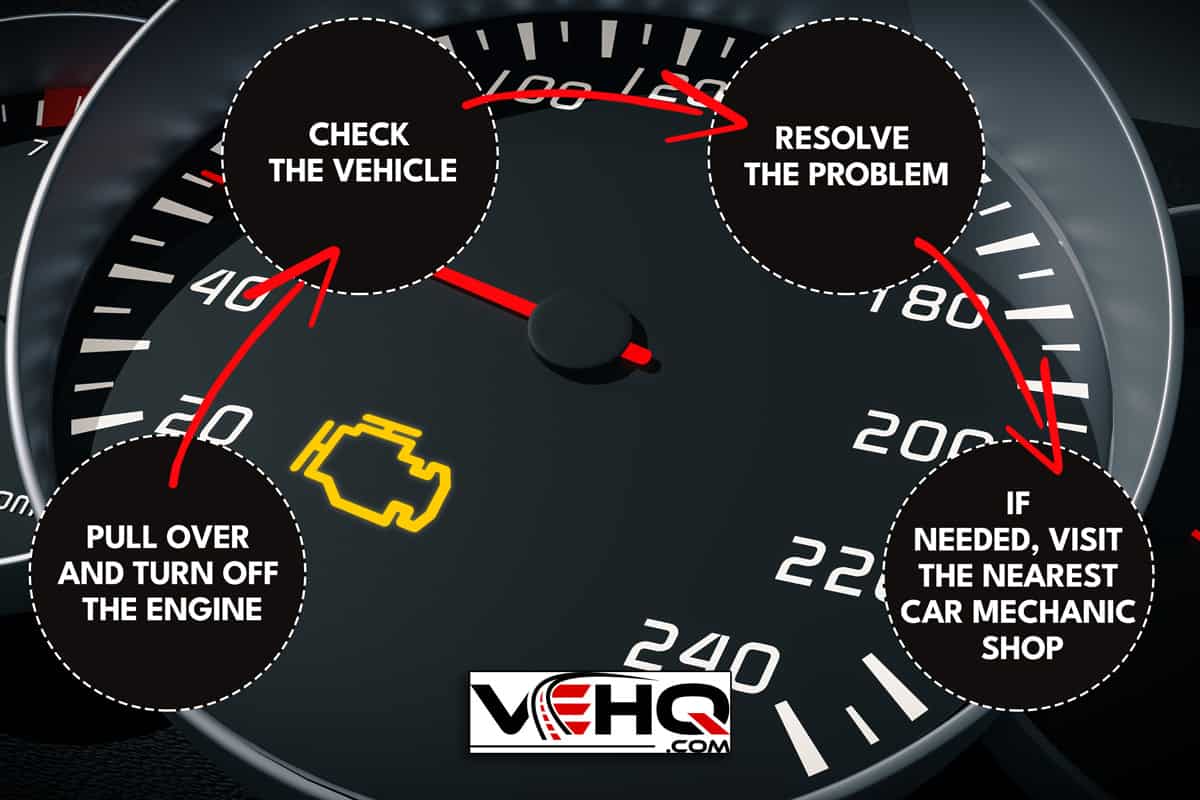
When Your Check Gauges Light Comes On, What Should You Do?
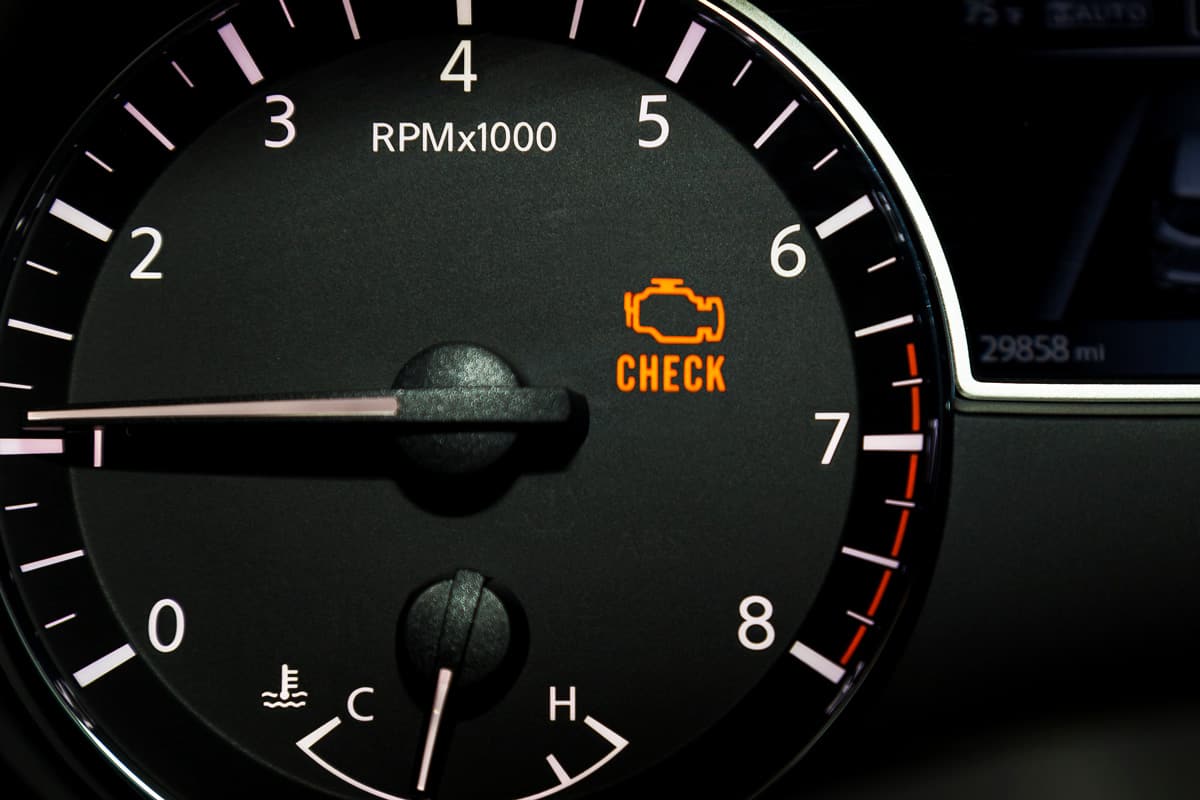
When you're driving, it's important to pay attention to all the lights on your dash. After all, they're there for a reason! If your "check gauges" light comes on, it means that one or more of your vehicle's sensors has detected a problem.
Here are some reasons why your check gauge is blinking on and off. See what could be the main problem and learn the appropriate action you can take.
The first things to do are:
- Pull Over and Turn Off the Engine
- Check the Vehicle
- Resolve the Problem
- If Needed, Visit the Nearest Car Mechanic Shop
By following these simple steps, you can quickly diagnose and fix the most common problems that cause the check gauges light to come on. Now, let's look at areas to troubleshoot.
1. Low Oil Pressure
If the check gauges light comes on and off, it could be a sign of low oil pressure. Oil is essential for keeping your engine cool and lubricated, so it's important to check the level regularly.
- If the light is flashing, pull over as soon as safely possible and shut off the engine.
- Then, check the oil level and add more if necessary.
- If the light is solid, you may be able to drive to a nearby service station, but keep an eye on the temperature gauge in case the engine starts to overheat.
In either case, it's a good idea to have the vehicle checked by a mechanic as soon as possible to ensure that there isn't a more serious problem.
2. Overheated Engine
This warning light indicates that one or more of your vehicle's gauges is not working properly. Your engine might be overheating.
- If this is the case, you should pull over as soon as possible and turn off the engine. Let the engine cool for a few minutes before checking the temperature gauge.
- If the gauge still reads hot, do not start the engine again.
- Instead, call a tow truck and take your vehicle to a nearby service station.
Overheating can cause serious damage to your engine, so it is important to take immediate action if this warning light comes on.
3. Faulty Sensors/Sending Units
If your check gauge's light is coming on and off, it's likely that you have a faulty sensor or sending unit.
- The first thing you'll want to do is check all of your fluids to make sure that they're at the correct levels.
- If everything looks good there, then you'll need to test your sensors and send units to see which one is causing the problem. This can be done with a multimeter.
- Once you've found the faulty component, it's a simple matter of replacing it and clearing the error code from your car's computer.
This brief video demonstrates how to check old and new sensors using a multimeter:
4. Loose Gas Cap
There are many potential causes for the check engine light to come on, so it is important to have the car diagnosed by a qualified technician. One common cause is a loose gas cap.
The gas cap seals the fuel system and helps to keep vapors from escaping. These vapors are drawn into the engine where they are burned along with the fuel.
If the gas cap is loose or damaged, vapors can escape, causing the check engine light to come on.
- In most cases, tightening or replacing the gas cap will clear the code and turn off the light.
- If you're not sure how to tighten or replace the gas cap, consult your car's owner's manual or take it to a qualified technician.
5. Thermostat Issues
One of the most common signs that your thermostat is stuck is if the check gauges light on your dashboard comes on and off.
- If this happens, you should pull over as soon as possible and check your engine's temperature.
- If it's overheating, turn off the engine and let it cool down.
- Once it's cooled down, you can start the engine again and see if the light goes off. If it doesn't, you'll need to have the thermostat replaced.
6. Vacuum Leak
The "check gauges" light is one of the most important lights on your car's dashboard. This light can come on for a variety of reasons, but one common cause is a vacuum leak. If you see this light come on, it's important to take action immediately.
- Pull over and turn off your engine.
- Then, check all of your car's hoses and connections to make sure they are tight.
- If you find a loose hose or connection, secure it and see if the light goes off.
- If the light does not go off, or if you cannot find the source of the leak, it's time to call a tow truck and have your car taken to a mechanic.
Don't try to drive with a vacuum leak - it can cause serious damage to your engine.
7. Blown Fuse
This warning light can indicate a variety of problems, from a loose gas cap to a blown fuse.
- If odd noises or smells accompany the light, it's best to pull over and call for roadside assistance.
- However, if the light comes on and then goes off again, the problem is likely a blown fuse.
- In this case, it's usually safe to continue driving, but you should make a note of which gauge is affected and have the problem checked by a mechanic as soon as possible.
- In the meantime, keep an eye on that gauge and be prepared to pull over if it starts acting strange.
8. Loose Fan/Accessory Belt
If the check gauge's light comes on and off while you are driving, it is most likely because the fan belt or accessory belt is loose.
- To fix this, you will need to pull over and open the hood.
- Once you have located the fan/accessory belt, tighten it with a wrench.
- If the problem persists, you may need to replace the belt entirely.
- In either case, it is best to consult a mechanic to ensure that the problem is correctly diagnosed and resolved.
Continuing to drive with a loose fan/accessory belt can lead to further damage, so it is important to take care of the issue as soon as possible.
Why You Should Reach Out To A Mechanic?
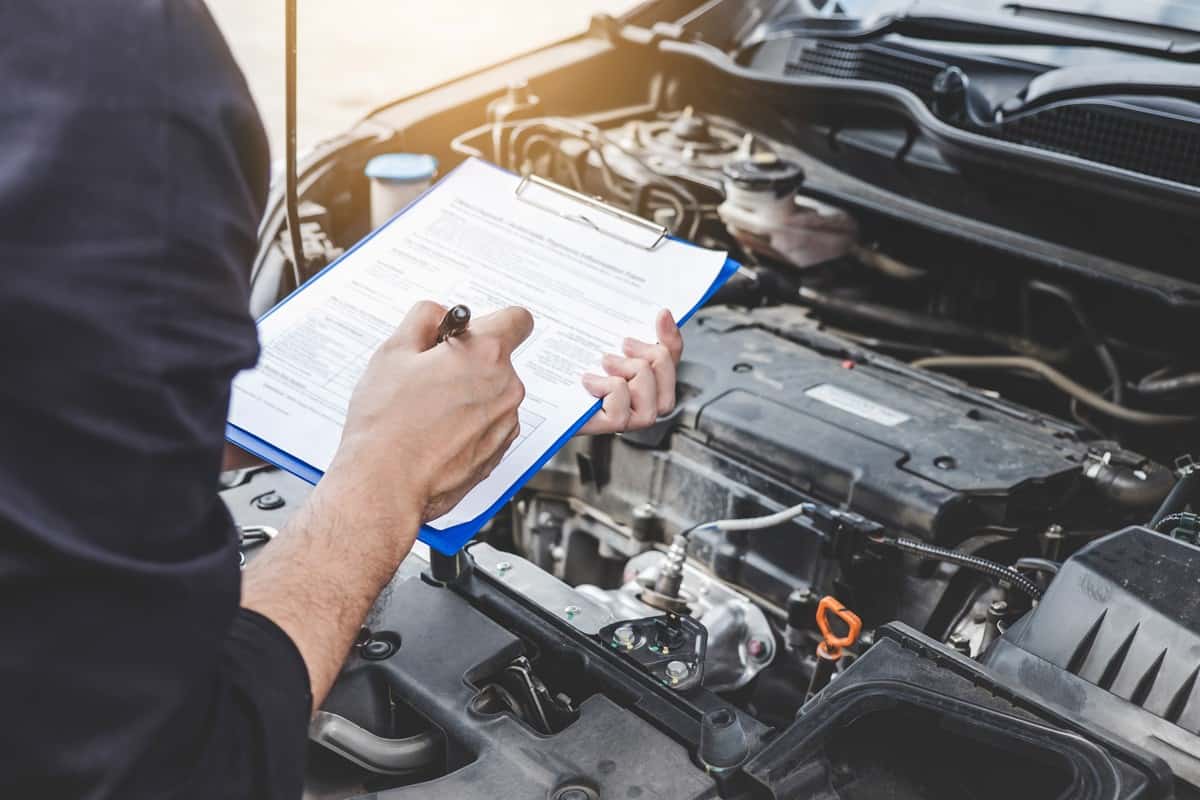
It is important to take the car to a mechanic to have it checked out. The mechanic will be able to test the various mechanisms in the car and identify the problem.
Once the problem has been fixed, the check gauge light should no longer come on.
If the Check Gauges Light Goes on and Off, Is It Safe to Continue Driving?
If you see the check engine light come on while you're driving, it's important to pay attention to it. The light could indicate a problem with your engine, and if you continue driving without addressing the issue, it could cause further damage.
But, if the light is intermittently going on and off, it's usually safe to continue driving. In most cases, this simply indicates that the sensor needs to be cleaned or replaced.
So, if you see the check engine light come on, don't panic. Just take note of it and bring your car in for service as soon as possible.
What Are the Benefits of Reviewing Your Check Gauge Regularly?
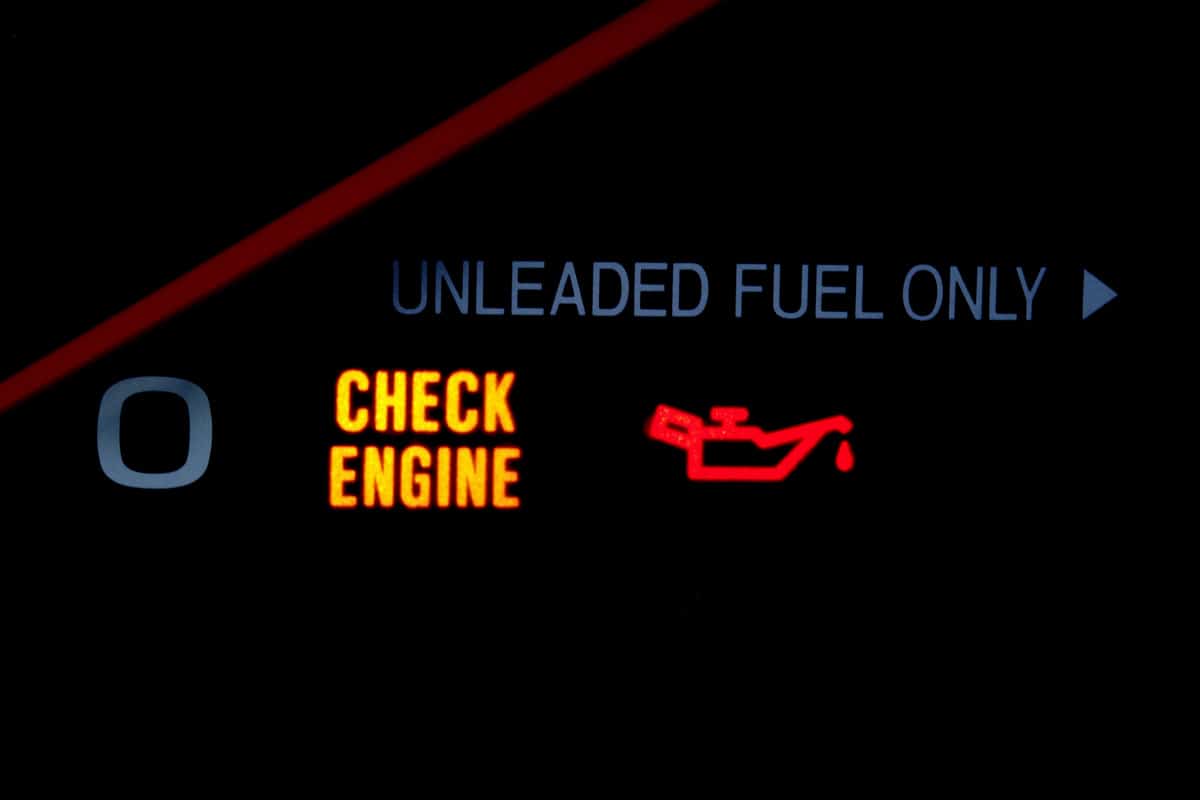
One of the best ways to keep your vehicle running smoothly is to review your instrument gauge regularly. This simple task can help you prevent engine problems, as well as keep an eye on your fuel levels and tire pressure.
- By taking a few minutes to check your gauges, you can avoid costly repairs and ensure that your car is running at its best.
- Additionally, reviewing your instrument gauge can help you troubleshoot any problems that you may be having with your vehicle. If something doesn't look quite right, you can take action to fix the problem before it becomes worse.
- Reviewing your gauges regularly is an essential part of owning a car, and it can save you time and money in the long run.
Final Thoughts
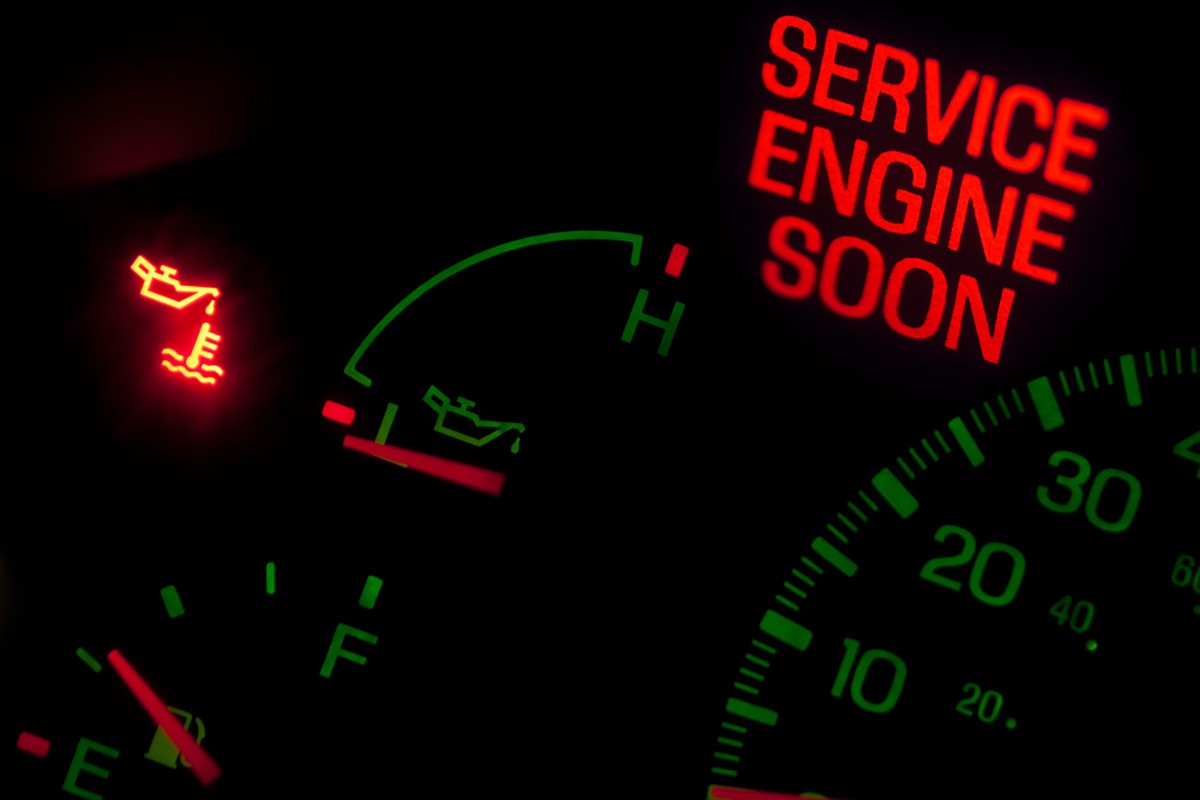
The check gauges light turning on is a signal from your car that something isn't quite right. It could be something small, like the gas cap not being screwed on all the way, or it could be a sign of something more serious. In either case, it's important to address the issue as soon as possible.
To learn more tips on keeping your vehicle in its best condition, see our posts below:
Can You Use Engine Brake In Rain, Ice And Snow?
How Long Do Spare Tires Last? [And How Far Can You Drive On Them]
